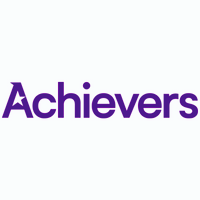8 creative ways to recognise employees beyond money
When you think of employee recognition, your mind may jump straight to financial rewards - bonuses, pay rises, and gift cards.
While money certainly has its place, it isn't always the most effective way to make employees feel valued.
Recognition that resonates on a personal level can have a lasting impact, improving morale, retention, and overall job satisfaction.
In the UK, workplace culture is evolving, and employees increasingly seek recognition that goes beyond their payslip.
Here are some creative and effective alternatives:
1. Personalised experiences: A thoughtful approach
Nothing says “we appreciate you” quite like a recognition effort tailored to an individual’s interests and personality.
Rather than a generic reward, consider experiences that create lasting memories.
Ideas to consider:
- Bespoke thank-you gifts: Instead of a standard voucher, find out what an employee enjoys. A book by their favourite author, a subscription to a hobby-based service, or a hand-picked hamper shows genuine thought.
- Experience days: Treat top performers to a day tailored to their interests, such as a theatre trip in London, a football match, or a spa retreat.
- Time-off rewards: Give high achievers the gift of time. A surprise afternoon off, an extended weekend, or a flexible workday can be more valuable than cash.
2. Growth and development opportunities
For many employees, career development is a key motivator. Investing in their growth is a powerful way to show appreciation while benefiting the business in the long run.
Ways to implement this:
- Mentorship programmes: Pair employees with senior leaders to help them gain insights and advance their careers.
- Professional training: Offer access to industry conferences, skill-building courses, or funding for further education.
- Job rotation and stretch assignments: Give employees the chance to explore different roles or take on exciting new projects, demonstrating trust in their abilities.
3. Social recognition: Celebrating in a public way
Acknowledgement in front of peers can be incredibly meaningful. Social recognition reinforces positive behaviour and fosters a culture of appreciation.
Strategies for public recognition:
- Shout-outs in team meetings: Take a moment in weekly catchups to highlight great work.
- Company-wide announcements: Share employee successes in newsletters, Slack channels, or intranet posts.
- Wall of fame: Create a digital or physical board to celebrate achievements, milestones, and contributions.
4. Peer-to-peer recognition: Empowering employees to appreciate each other
Recognition shouldn’t just come from the top down.
Encouraging employees to acknowledge their colleagues builds a supportive and engaged workplace culture.
Ways to encourage peer recognition:
- Kudos platforms: Use internal tools where employees can send virtual appreciation messages.
- Recognition cards: Provide physical or digital thank-you cards for employees to share appreciation.
- Monthly peer awards: Let employees nominate colleagues for contributions that might otherwise go unnoticed.
5. Workplace perks that go beyond the norm
Small but meaningful perks can boost engagement and show employees that you care about their well-being and work-life balance.
Ideas to try:
- Pet-friendly days: If feasible, allow employees to bring their pets to work for a morale boost.
- Wellness initiatives: Offer meditation sessions, gym memberships, or mental health support services.
- Surprise treats: Deliver unexpected perks, such as free coffee days, healthy snack boxes, or team lunches.
6. Celebrating personal and professional milestones
Acknowledging key moments in an employee’s life shows that they are valued as individuals, not just workers.
Ways to celebrate:
- Work anniversaries: Mark milestones with personalised messages, a small gift, or a handwritten note from leadership.
- Birthday recognitions: A team-wide card, a cake, or even a simple message goes a long way.
- Life events: Recognise weddings, new babies, or significant personal achievements with thoughtful gestures.
7. Involving leadership in recognition efforts
Recognition is even more meaningful when it comes directly from leadership. A message from a senior figure can reinforce an employee’s value in a powerful way.
Ways leaders can engage:
- Handwritten notes: A personal message from a manager or executive shows effort and sincerity.
- One-on-one praise: A direct conversation about an employee’s contributions strengthens relationships.
- Leadership lunches: Invite high-performing employees to lunch with senior leaders for open discussions and appreciation.
8. Creating a culture of appreciation
Recognition is about fostering an environment where appreciation is embedded in company culture.
When recognition becomes second nature, employees feel valued consistently, not just during performance reviews or annual bonuses.
Steps to build a recognition-rich culture:
- Make it a habit: Encourage regular, informal recognition, not just during special events.
- Encourage inclusivity: Ensure that all departments and levels feel equally recognised.
- Measure and improve: Gather employee feedback on recognition efforts and refine them accordingly.
The bottom line
Money isn’t the only way to make employees feel valued.
Thoughtful, personal, and creative recognition efforts often have a greater impact than financial incentives alone.
By incorporating personalised experiences, development opportunities, social recognition, and cultural shifts, you can create a workplace where employees feel genuinely appreciated and motivated to perform at their best.
The key is consistency.
A one-time gesture may be nice, but ongoing, meaningful recognition builds lasting engagement, loyalty, and a stronger workplace culture.
Supplied by REBA Associate Member, Achievers
Achievers is an enterprise Recognition and Reward software with non-monetary and monetary recognition and a global reward marketplace.








